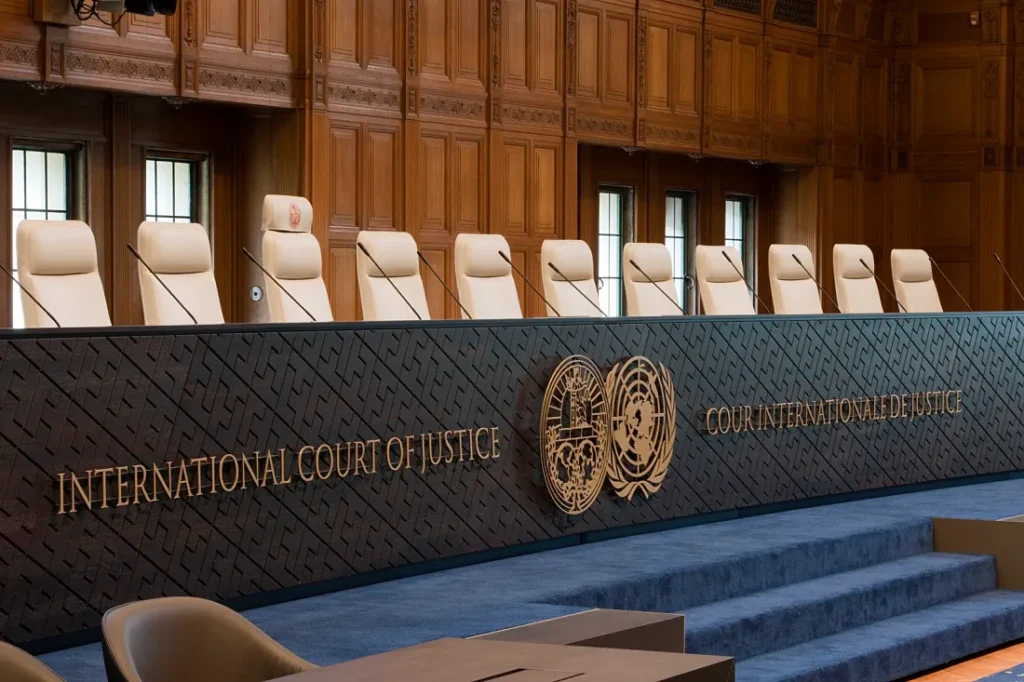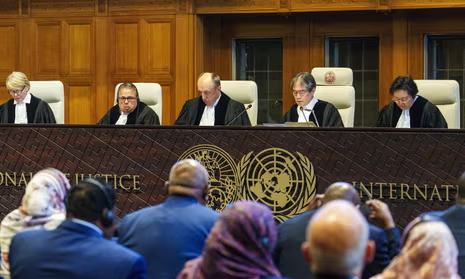Sudan’s ongoing legal battle at the International Court of Justice (ICJ) has been drawing attention worldwide, with its most recent ruling marking a significant point in the country’s efforts to seek justice. The ruling has sparked a range of reactions, from optimism about international law’s ability to hold nations accountable to concerns about how it could impact Sudan’s future on the global stage.
The ICJ, the principal judicial organ of the United Nations, handles disputes between states, and its decisions are typically binding. The recent case has raised critical questions about state responsibility, international law, and the future of Sudan’s relationships with other nations.
The Background of Sudan’s ICJ Case
To understand the significance of the recent ruling, it’s essential to consider the backdrop of Sudan’s case. The country has been grappling with a variety of international and domestic challenges, including conflicts, humanitarian crises, and accusations of involvement in war crimes. The ICJ case itself stems from allegations against Sudan related to its role in the Darfur conflict, particularly the charges of genocide and crimes against humanity.

In 2009, the International Criminal Court (ICC) issued an arrest warrant for former Sudanese President Omar al-Bashir on charges of war crimes, crimes against humanity, and genocide. This marked the beginning of a long and complex legal journey, culminating in Sudan’s referral to the ICJ for further legal proceedings.
The ICJ’s role in this case has been focused on determining whether Sudan violated its obligations under international law and whether it should be held accountable for the alleged violations. The court’s ruling is of immense importance for both Sudan and the international community.
The Key Points of the ICJ Ruling

The recent ruling from the ICJ has several critical elements. One of the most significant aspects of the case was whether Sudan was responsible for the atrocities committed in Darfur and, if so, whether the country could be held liable under international law.
The ICJ’s judgment, while acknowledging the gravity of the crimes committed, did not rule entirely in favor of the plaintiffs. In its decision, the court emphasized the complexities surrounding state responsibility, highlighting that Sudan’s actions could not be solely attributed to the government or its leaders.
While the ruling does not absolve Sudan entirely, it underscores the challenges in holding a nation accountable for actions carried out by individual actors within its borders. The court’s ruling also stressed the importance of state sovereignty and the limits of international law in enforcing accountability.
The Reaction to the ICJ’s Decision
The reactions to the ICJ ruling have been mixed. Some legal experts and human rights organizations have expressed disappointment, arguing that the ruling may set a dangerous precedent for future cases involving state responsibility for atrocities. They warn that it could weaken the ability of international courts to hold countries accountable for egregious crimes.
On the other hand, others have hailed the decision as a necessary acknowledgment of the complexities involved in prosecuting state responsibility. The ruling may also reflect the court’s careful approach in balancing the sovereignty of nations with the need for accountability under international law.
For Sudan, the ruling has been a moment of relief, as it avoids further legal ramifications. However, it also leaves the country in a precarious position, as it continues to face international scrutiny over its past actions.
The Impact on Sudan’s International Relations

The ICJ ruling could have significant consequences for Sudan’s future relations with other nations and international bodies. As Sudan works to rebuild its reputation following years of political unrest, the ruling will likely influence how other countries engage with Sudan in diplomatic, trade, and security matters.
The decision could pave the way for Sudan to repair its ties with the international community. Many countries have long been wary of Sudan, particularly due to its involvement in the Darfur conflict. The country’s efforts to resolve its internal crises and improve governance will be closely monitored by other nations, and the ICJ ruling could serve as a benchmark for assessing Sudan’s commitment to international norms.
In the aftermath of the ruling, Sudan may seek to strengthen its relations with key international players, including the United Nations, the African Union, and other regional organizations. By adhering to international law and demonstrating progress on human rights, Sudan could gradually regain its standing on the global stage.
The Future of Sudan’s Legal and Political Landscape
Looking ahead, the ICJ ruling is unlikely to be the final chapter in Sudan’s legal and political journey. The country continues to face significant challenges, both domestically and internationally. The Darfur conflict, which left thousands dead and millions displaced, remains a major issue, and Sudan will need to address the long-term consequences of the war if it hopes to heal and move forward.
The ICJ ruling also serves as a reminder of the importance of accountability in international law. While Sudan may have avoided the most severe legal consequences for its actions, the global community will continue to hold the country to high standards, pushing for justice and reform. The ruling’s impact on Sudan’s internal politics remains uncertain, but it is likely that the case will influence how future governments approach issues of justice, governance, and human rights.
Conclusion: A Milestone, Not the End
The ICJ ruling on Sudan’s case is a crucial milestone in the country’s journey toward rebuilding its international reputation. It provides a window into the complexities of international law and the challenges of holding a state accountable for the actions of its leaders. While the decision does not offer a complete resolution to the legal questions at hand, it highlights the ongoing importance of international justice and the need for continued dialogue and cooperation among nations.
As Sudan moves forward, it will need to address the lingering issues from its past while working to establish a more stable, transparent, and just future. The ICJ ruling may not have brought a definitive end to the country’s legal battles, but it serves as a pivotal moment in Sudan’s ongoing quest for justice and reconciliation on the global stage.
Also read: Self-Driving Taxis in Abu Dhabi: Your Complete Booking Guide













